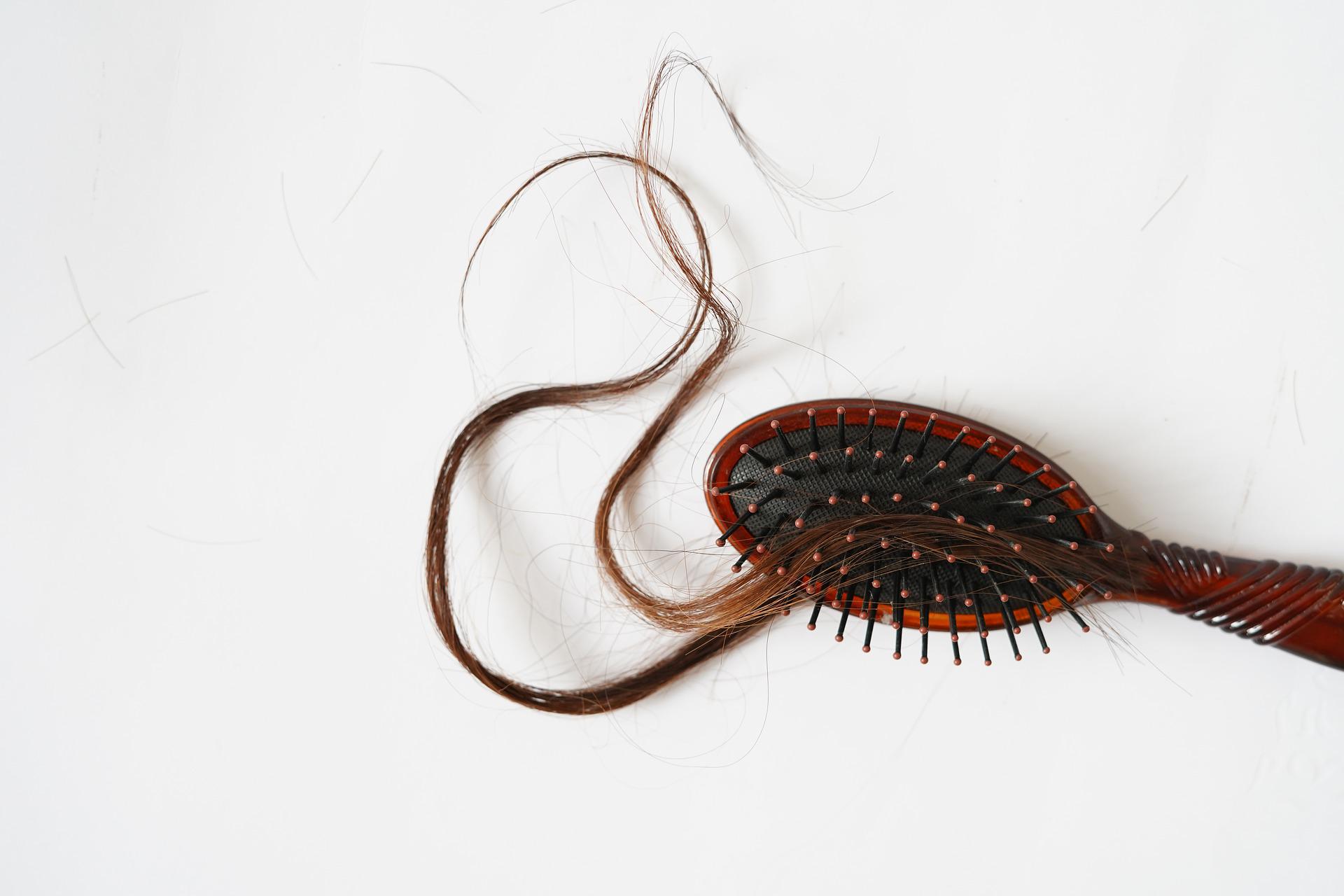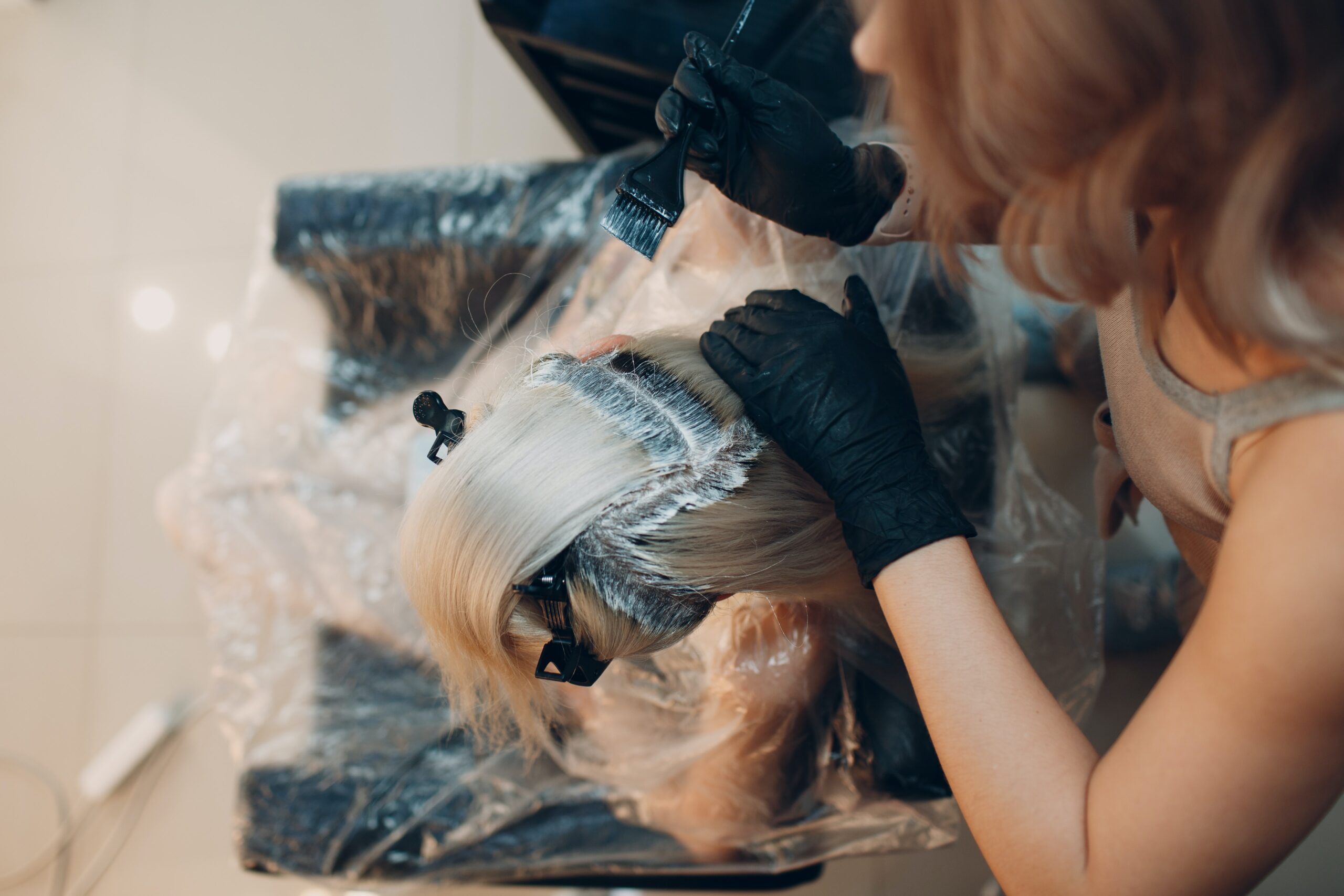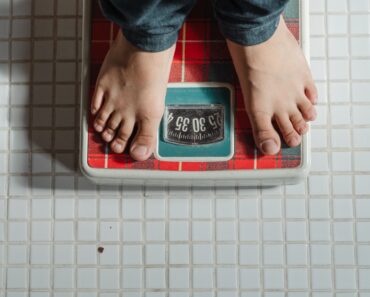Hair loss in women
Certainly, nothing compares to the allure of thick, luxurious hair. As a result, many women constantly seek methods to achieve fuller and longer hair, as it not only enhances their appearance but also reflects overall health. However, for many women, hair loss poses a significant challenge and concern, acting as a barrier to their quest for beautiful, healthy hair.
Tips for treating hair loss
To prevent or address hair loss effectively, consider following these guidelines:
- Limit Hair Dryer Use: Reduce reliance on hair dryers to minimize heat damage.
- Minimize Heat Styling: Cut back on the use of straighteners and curling irons to prevent excessive heat exposure.
- Avoid Chemical Treatments: Steer clear of hair dyes and other chemical treatments that can weaken hair.
- Skip Hair Bleaching: Refrain from bleaching your hair, as it can cause significant damage and increase the risk of hair loss.
- Avoid Tight Hairstyles: Refrain from pulling or combing your hair too tightly to prevent stress on your follicles.
- Select the Right Shampoo: Choose a shampoo suited to your specific hair type to ensure optimal cleansing and care.
- Use Quality Hair Tools: Opt for a high-quality comb or brush to avoid unnecessary breakage and damage.
- Incorporate Scalp Massage: Regularly massage your scalp to stimulate blood circulation and support healthy hair growth.
- Maintain a Balanced Diet: Eat a nutritious diet rich in iron, protein, vitamin C, omega-3 fatty acids, and biotin to nourish your hair from within.
- Consult a Specialist for Supplements: Consider taking nutritional supplements only after consulting with a healthcare professional to address any specific deficiencies.
Foods that helps in mainting a healthy hair
- Salmon: Rich in omega-3 fatty acids and protein, salmon promotes a healthy scalp and supports hair growth.
- Spinach: High in iron and vitamins A and C, spinach helps improve circulation to the scalp and encourages hair growth.
- Eggs: Packed with protein and biotin, eggs are essential for hair strength and health.
- Nuts and Seeds: Almonds, walnuts, flaxseeds, and chia seeds provide omega-3 fatty acids, vitamin E, and zinc, which are crucial for healthy hair.
- Sweet Potatoes: Rich in beta-carotene, which converts to vitamin A, sweet potatoes help keep the scalp healthy and promote hair growth.
- Greek Yogurt: High in protein and vitamin B5, Greek yogurt supports hair strength and moisture.
- Berries: Berries such as strawberries, blueberries, and raspberries are rich in antioxidants and vitamin C, which help protect hair follicles from damage.
- Legumes: Beans, lentils, and chickpeas are excellent sources of protein, iron, and biotin, essential for hair health.
- Avocados: Full of healthy fats, vitamin E, and vitamin C, avocados nourish the scalp and strengthen hair.
- Lean Poultry: Chicken and turkey provide high-quality protein and essential nutrients that support hair growth and repair.
Causes of hair loss
Hair loss in women can be attributed to a variety of factors, including:
- Environmental Factors: Exposure to pollutants and harsh weather conditions can impact hair health.
- Aging: The natural aging process can lead to thinning hair and reduced growth.
- High Stress Levels: Chronic stress and anxiety can contribute to significant hair loss.
- Excessive Smoking: Smoking can impair blood circulation to the scalp and negatively affect hair growth.
- Nutritional Deficiencies: Lack of essential nutrients, such as vitamins and minerals, can lead to weakened hair and loss.
- Hormonal Imbalances: Fluctuations in hormones, including those related to pregnancy, menopause, or thyroid function, can affect hair health.
- Genetic Predisposition: Hereditary factors can play a significant role in hair thinning and loss.
- Scalp Infections: Infections such as fungal or bacterial conditions can damage the hair follicles and lead to hair loss.
- Inappropriate Hair Products: Using products with harsh chemicals or those not suited to your hair type can cause damage and loss.
- Medication Side Effects: Some medications can have side effects that include hair thinning or loss.
- Medical Conditions: Disorders such as thyroid imbalances, autoimmune diseases, polycystic ovary syndrome (PCOS), anemia, and chronic illnesses can contribute to hair loss.
Understanding these factors can help in identifying potential causes and finding effective solutions for managing and preventing hair loss.










